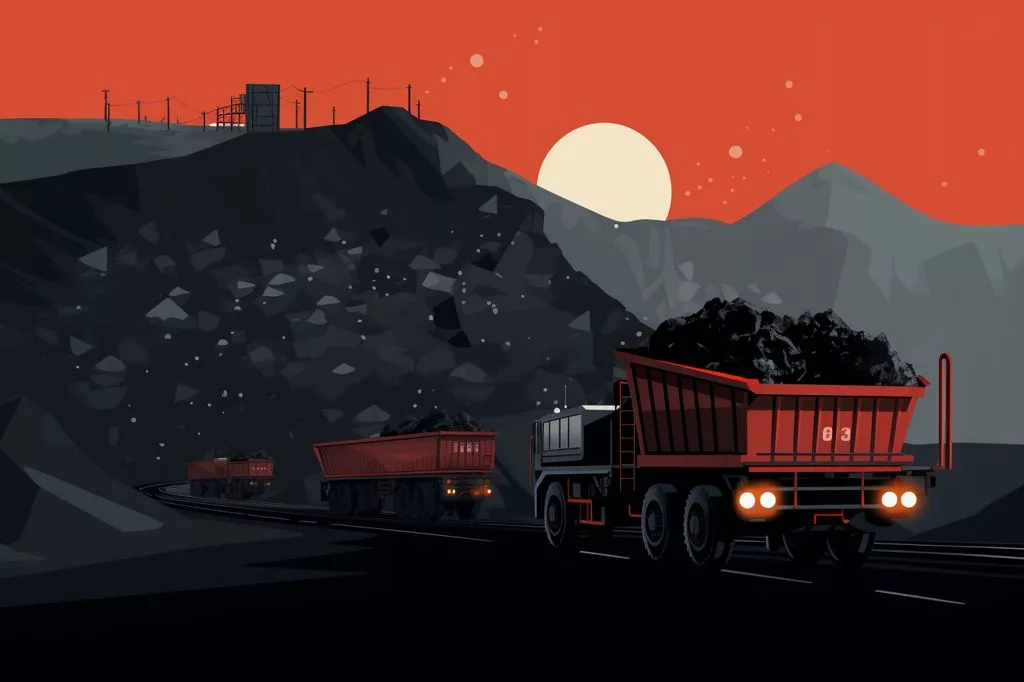SARS and law enforcement agencies in South Africa conducted a search and seizure operation in five provinces, aiming to dismantle an elaborate criminal network of coal-smugglers responsible for the energy crisis and load shedding in South Africa. The operation was initiated by SARS after discovering numerous tax crimes allegedly perpetrated by members of the coal-smuggling network. The accused coal-smugglers and their associated entities are known to be operating in Gauteng, Mpumalanga, KwaZulu-Natal, the Free State, and Limpopo. The success of this operation is due to the remarkable inter-governmental collaboration and information sharing.
What is the inter-governmental search and seizure operation conducted by SARS and law enforcement agencies in South Africa?
SARS joined forces with law enforcement agencies across five provinces to conduct an inter-governmental search and seizure operation aimed at dismantling an elaborate criminal network of alleged coal-smugglers. This criminal activity has significantly contributed to the energy crisis and load shedding in South Africa. The accused coal-smugglers and their associated entities are known to be operating in Gauteng, Mpumalanga, KwaZulu-Natal, the Free State, and Limpopo. Former Eskom employees, who facilitated procurement fraud, were among the suspects targeted in the operation, along with other individuals involved in the diversion of high-grade coal.
In a groundbreaking effort, the South African Revenue Service (SARS) joined forces with law enforcement agencies across five provinces to conduct a massive inter-governmental search and seizure operation aimed at dismantling an elaborate criminal network of alleged coal-smugglers. This criminal activity has significantly contributed to the energy crisis and load shedding in South Africa.
Uncovering Tax Crimes
The operation was initiated and spearheaded by SARS, following the discovery of numerous tax crimes allegedly perpetrated by members of the coal-smuggling network. The success of this operation is due to the remarkable inter-governmental collaboration and information sharing under the NATJOINTS Energy Safety & Security Priority Committee. This committee is dedicated to identifying and prosecuting the criminals responsible for causing economic and personal hardships to South African citizens.
Through diligent and often unseen work, these investigative breakthroughs have allowed South Africans to gradually return to a life without the strain of load shedding. Additionally, such targeted operations assist in preventing the loss of revenue to the fiscus, which in this case exceeded R500-million.
Coal Syndicate Operations
The accused coal-smugglers and their associated entities are known to be operating in Gauteng, Mpumalanga, KwaZulu-Natal, the Free State, and Limpopo. Former Eskom employees, who facilitated procurement fraud, were among the suspects targeted in the operation, along with other individuals involved in the diversion of high-grade coal.
SARS successfully established connections between individuals and related entities, confirming possible significant violations from a tax perspective. These violations include non-registration for Income Tax, VAT, and PAYE; failure to submit tax returns; under-declaration of income; claiming undue VAT refunds; and making false submissions (fraud).
Damaging the Infrastructure
The intricate network of coal-smugglers is believed to comprise both local and foreign nationals. In a well-orchestrated operation, coal trucks intended for power stations are diverted to designated coal yards, where high-grade coal is replaced with low-grade or sub-standard product. The high-grade coal is then exported or sold to willing buyers, while the low-grade coal is often mixed with scrap or other materials and delivered to power stations.
The use of low-grade coal causes damage to the infrastructure at Eskom power stations, a significant factor in incapacitating the power utility’s capacity to generate electricity for the South African grid.
Applauding Law Enforcement Efforts
SARS Commissioner Edward Kieswetter praised the country’s law enforcement agencies for their significant progress in ongoing investigations. He stated that “it is because of such naked greed that the country has experienced unprecedented load shedding, which harms business, undermines foreign direct investment, and leads to job losses – all of which negatively affect revenue collection.”
Kieswetter stressed that all law enforcement agencies must maintain their aggressive stance against criminality, each abiding by its mandate. “For its part, SARS will continue to pursue taxpayers involved in intentional and willful non-compliance – without fear, favor, or prejudice,” he added.
This operation delivers a strong and unmistakable message to all those engaged in organized crime – you will be relentlessly pursued and brought to justice.
For more information, please contact SARS at SARSMedia@sars.gov.za.
What is the aim of the search and seizure operation?
The aim of the search and seizure operation conducted by SARS and law enforcement agencies in South Africa is to dismantle an elaborate criminal network of coal-smugglers responsible for the energy crisis and load shedding in South Africa. The operation was initiated by SARS after discovering numerous tax crimes allegedly perpetrated by members of the coal-smuggling network.
Who are the accused coal-smugglers and where are they operating?
The accused coal-smugglers and their associated entities are known to be operating in Gauteng, Mpumalanga, KwaZulu-Natal, the Free State, and Limpopo. Former Eskom employees, who facilitated procurement fraud, were among the suspects targeted in the operation, along with other individuals involved in the diversion of high-grade coal.
What violations were confirmed by SARS?
SARS successfully established connections between individuals and related entities, confirming possible significant violations from a tax perspective. These violations include non-registration for Income Tax, VAT, and PAYE; failure to submit tax returns; under-declaration of income; claiming undue VAT refunds; and making false submissions (fraud).
How does the coal-smuggling network operate?
Coal trucks intended for power stations are diverted to designated coal yards, where high-grade coal is replaced with low-grade or sub-standard product. The high-grade coal is then exported or sold to willing buyers, while the low-grade coal is often mixed with scrap or other materials and delivered to power stations. The use of low-grade coal causes damage to the infrastructure at Eskom power stations, a significant factor in incapacitating the power utility’s capacity to generate electricity for the South African grid.
How much revenue was lost due to the coal-smuggling network?
Such targeted operations assist in preventing the loss of revenue to the fiscus, which in this case exceeded R500-million.
What is the NATJOINTS Energy Safety & Security Priority Committee?
The NATJOINTS Energy Safety & Security Priority Committee is dedicated to identifying and prosecuting the criminals responsible for causing economic and personal hardships to South African citizens. The success of this operation is due to the remarkable inter-governmental collaboration and information sharing under the committee.
Who praised the law enforcement agencies for their efforts in the investigation?
SARS Commissioner Edward Kieswetter praised the country’s law enforcement agencies for their significant progress in ongoing investigations. He stressed that all law enforcement agencies must maintain their aggressive stance against criminality, each abiding by its mandate.
How can one get more information about the operation?
For more information, please contact SARS at SARSMedia@sars.gov.za.








